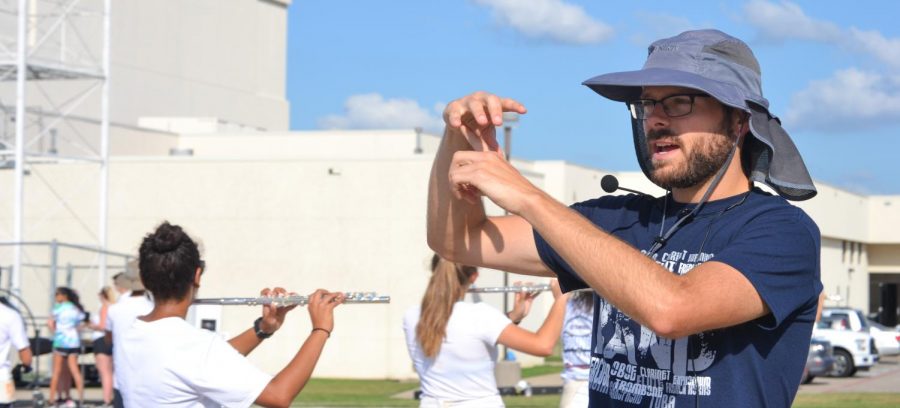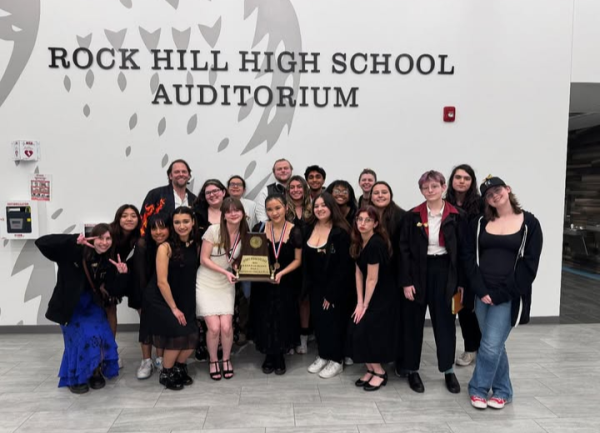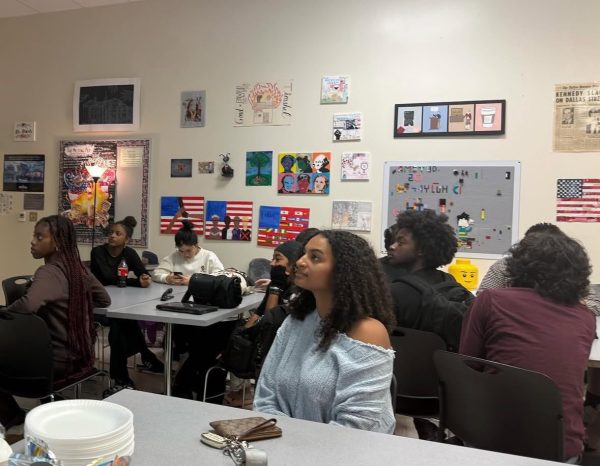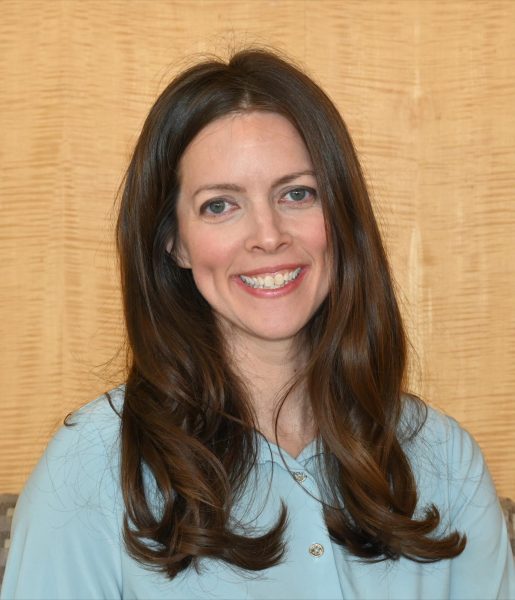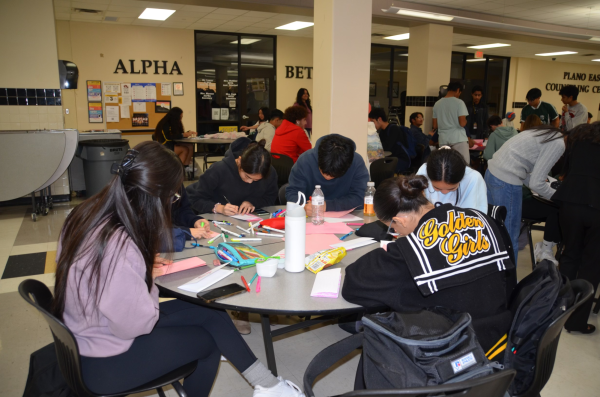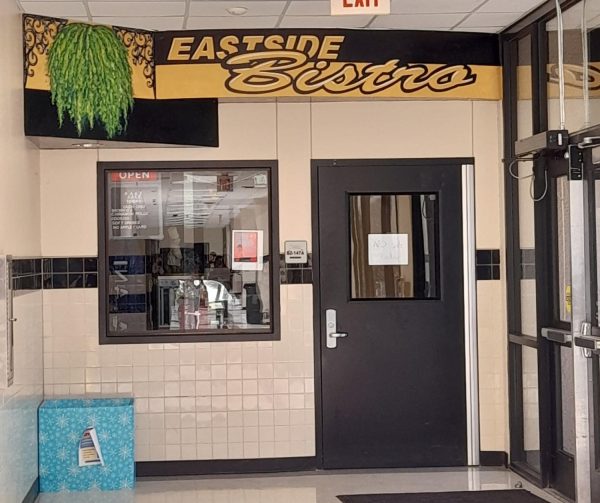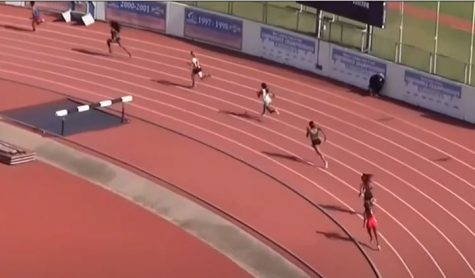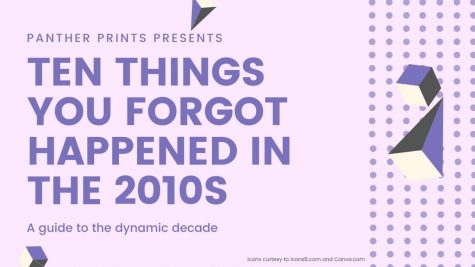Band Director by Day, Ping Pong Champion by Night
Q&A with Mr. Albert
Mr. Albert directs the flutes during marching practice after school on Sept. 13.
Q: How long have you been a band director?
A: “This is my 5th year, so four years at McMillen and then start of the 5th year now.”
Q: What made you want to become a band director in the first place?
A: “When I was in high school, I thought I wanted to do architecture or culinary arts. I liked both of those things a lot, but by the time the beginning of my senior year rolled around, I decided that I didn’t want to do either of those things. I really couldn’t imagine my life without [band.] It was such a big part of my life and when I sat down and thought ‘Okay, what is my future going to look like?’ it always involved having band in it, so that’s kind of when I knew that I wanted to keep it going.”
Q: Were you in band throughout high school?
A: “Yes. I started band very similar to how everybody here starts band. [I] was in 6th grade trumpet class, and then middle school band in 7th and 8th grade, and then I went to a four-year high school so all the way through I did band.”
Q: Where did you go to high school?
A: “I went to high school in Mansfield, Texas at Mansfield Legacy High School.”
Q: Could you describe your high school experience in terms of how it got you to this point in your life?
A: “My high school experience involved almost 100 percent around band, so that influenced everything. It influenced my friend group—they were all in band—which then influenced the classes I took. When I think back to high school and the memories I had, [they’re] almost always something to do with a time at a football game, a time during a rehearsal, traveling to a competition or traveling out of state to Chicago or Florida, so that is really what defined my school experience. I made really good friends that I still talk to; one of them is a band director.”
Q: What do you appreciate most about music in general?
A: “It does a lot of things for your mind. It gives people more understanding about maybe their emotions because a lot of times music can convey things and bring up emotions and feelings in you that really only music can. People like to listen to music when they study and it’s all different. It all serves a different purpose and I think that’s what I appreciate the most about music. It does and can reach everybody in the world, which is a rare thing.”
Q: If you had to describe yourself in three words, what three words would you use?
A: “I am very nerdy, I like to think I’m fun to be around, and I’m pretty thoughtful.”
Q: What do you like to do in your free time?
A: “I love to be outside. People say they hate the heat here in Texas; I don’t mind it at all. I think it’s a good time to be outside. I like to camp, I like to go hiking [and] I like to go fishing. I haven’t done it so much recently but I like to go hunting. That’s kind of where I grew up. My childhood all revolved around the outdoors, so I like to spend time there and do that stuff, too. And I also like to read a lot.”
Q: What is one interesting fact that people don’t know about you?
A: “When I was probably 11 or 12 years old, I was in a ping pong tournament in Florida and I got third place overall. It was kind of a big deal. I don’t play it anymore because I no longer have a table, but when I was growing up in my parent’s house we had a ping pong table and I played it all the time. All the time. My brother and I were always playing each other and we got pretty good at it. I remember going to band camp my senior year and I beat every single person who tried to play me. So if you want a ping pong match, bring it on, because I’ll probably—well, I’m not going to gloat or anything—but I’ll give you a run for your money.”
Q: Could you describe your transition from McMillen to Plano East?
A: “So far, pretty smooth. A lot of the students in the band here are students that I’ve taught in the past, so as far as knowing the people who are in the band and who I work with every day, they are the same. It’s the next level up and it’s a harder, faster pace, but so far it’s been great.”
Q: Can you give us a look behind the scenes of band?
A: “Band is fun for two reasons. It’s fun because you get to be around people who do what you do. It’s a huge club. You’re guaranteed to find a friend somewhere in it. The other reason it’s fun is because we like to be good. What you see outside every day [when we’re] practicing is our hard work and [the students] give a lot of their time to do it. I guess what you don’t see is the amount of individual practice they put forward. They have to memorize their music. They have to memorize their marching. We practice their marching, but ultimately it’s on them. It’s a huge responsibility. It’s cool in the end. It really makes it worth it because you feel accomplished. The other thing that people don’t really see is that it truly is a bubble. You’ve probably heard plenty of times that band is like a family. It’s so cliche, but it’s true. By the end of a season you’ve gone through all this rigor that only the people around you have gone through as well, so you share this thing in common that really binds you together and creates [memories] that obviously you’re never going to forget. You get four marching shows as a high schooler, so you get four chances to get out there and make something memorable. It’s fun to do that. It’s fun to be good and in the process of doing all that you make friends that you’ll know forever. That’s what goes on behind the scenes.”
Q: Do you feel connected to the students you teach?
A: “Yes, absolutely. Part of it is because a lot of what they’re going through right now, I’ve been through. And that’s why I still do what I do. But another reason is that there are good people in the band and it’s easy to connect with good people who work hard. You have a connection because everybody is working toward the one goal of giving a good performance. And [naturally] by doing it right, you’re going to have connections. We have a great leadership team that we rely on so much and in order for that to work, we have to have a good student-teacher relationship and connection, and they’re all connected with each other as well. Like I said earlier, it’s cliche but it’s true: it’s a big family.”
Q: Are there things you learn from your students?
A: “Everyday. Learning never stops. I had this misconception when I was in high school that after college it was just ‘Okay I’m done with college, now it’s time to go be a band director. Time to be the one on the opposite end. I’m going to be giving the instructions so on and so forth.’ But learning never stops. They teach me a lot about how I need to do my job so they can have the most fun and be the most successful. I would not be the teacher I am today if it weren’t for the students that I have encountered this year and for the past four years.”



